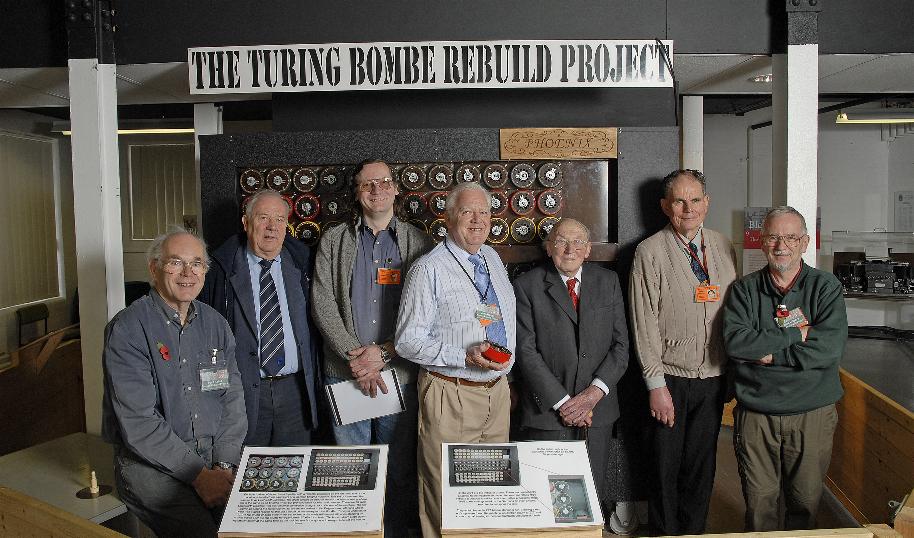|
The Bombe tops engineers’ poll

|
|
The Bombe Rebuild team led by John Harper (centre) on the occasion of the visit
by the late Sir Maurice Wilkes (5th from the left) with
David Hartley (2nd from the left), the then chair of CCS.
|
The Bombe code-breaking machine has been voted the favourite artefact ever to have won
an Engineering Heritage Award.
The Computer Conservation Society (CCS) and its team led by John Harper which
reconstructed the Bombe at Bletchley Park is delighted by the accolade.
To mark the 30th anniversary of the Engineering Heritage Awards,
the 105,000 members of the Institution of Mechanical Engineers were invited to vote
for their favourite of the 99 artefacts to have received a heritage award.
The Bombe won with Concorde and the Rolls Royce RB 211 engine in second and
third places respectively.
The Bombe was an electro-mechanical device designed by Alan Turing, Gordon Welshman
and Harold Keen to crack the German Enigma cipher during the Second World War.
The 200 Bombes, originally built by the British Tabulating Machine Company,
were capable of decrypting up to 5,000 messages each day and the intelligence
they gleaned helped shorten the war.
Using the Bombe's original blueprints, a CCS team led by John Harper completed
a reconstruction of the Bombe in 2007.
The task took 13 years of meticulous research and engineering and the result is
now on display at Bletchley Park.

|
|
The Award itself.
|
John Harper, leader of the Bombe reconstruction team, was thrilled by the award:
“We are honoured with such an accolade and somewhat humbled to be seen in
the same light as the other entrants.
We are thrilled that our reconstruction of the Bombe as a tribute to the
code-breakers of Bletchley Park has caught the imagination of our peers.”
Rachel Burnett, Chair of the CCS, said: “The CCS aims to highlight the achievements
of the pioneers of computing with working reconstructions and restorations of
key machines.
John Harper’s team did an incredible job in reconstructing the
Bombe and it so gratifying to see the impact that it has made in helping today
understand the achievements of the past.
It’s an inspiration for everyone who sees it and ensures that those amazing
original feats can be fully appreciated by current and future generations.”
|
